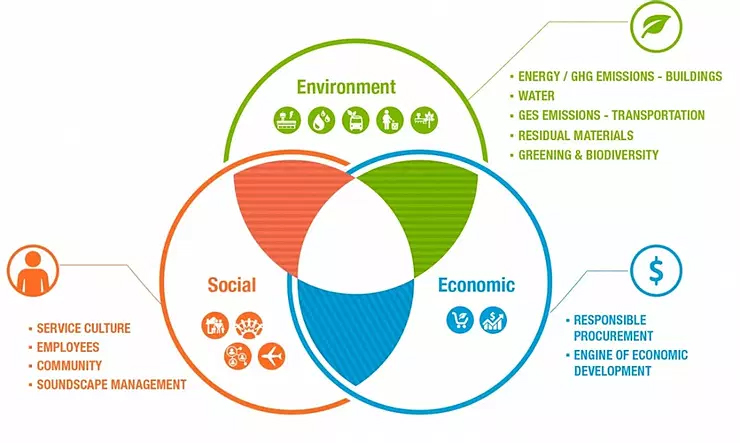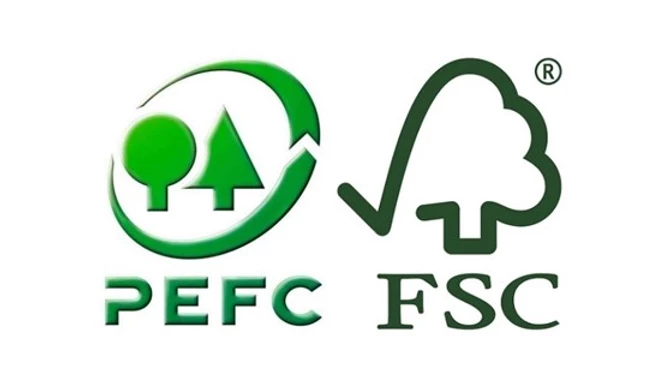
Are Single-Use Wooden Utensils Sustainably Sourced?
Disposable plastic utensils may be small, but their collective carbon footprint is massive. In the U.S., more than 100 million plastic utensils are used daily, amounting to about 40 billion plastic utensils used annually—most of which can’t be recycled because of their size, shape, and hard-to-identify materials. These plastics end up in landfills, taking up space and emitting harmful greenhouse gases.
As Americans become more aware of how their purchases affect the planet’s health, single-use wooden utensils have arisen as a more responsible alternative. But simply switching to disposable wooden utensils isn’t enough. It’s essential that the utensils are made from sustainably sourced wood to ensure a positive impact on the environment.
What Are Sustainably Sourced Wooden Utensils?
 Product manufacturers have a duty to source materials in a sustainable way, which requires finding renewable resources that can be harvested, transformed, and replaced without requiring very much energy.
Product manufacturers have a duty to source materials in a sustainable way, which requires finding renewable resources that can be harvested, transformed, and replaced without requiring very much energy.
In theory, wooden utensils are always sustainably sourced because wood is a renewable resource that can be replaced by planting new trees. Unfortunately, not all wooden utensil manufacturers follow the proper steps necessary to make their entire supply chain environmentally friendly.
The sustainability of wooden utensils depends on a few factors:
The type of wood used
The amount of energy required to process the wood into single-use utensils
How the forests they’re sourced from are managed and harvested
Different plants grow at different rates. Birch trees and bamboo plants, for example, grow relatively quickly, making them ideal for sustainability-focused manufacturers. Once birch and bamboo are harvested, new trees are planted in their place, and the cycle begins again.
Birch and bamboo are also materials that are easy to process, meaning the wood can be turned into disposable utensils without using much energy, diminishing the planet’s water supply, or producing volatile chemicals.
Perhaps the most important element of sustainably sourced wooden utensils is that they come from wood that was properly grown and harvested. Sustainable forestry is complex, but in short, it allows trees to be harvested for manufacturers without jeopardizing the health of the environment, forest wildlife, and workers involved in the process. It maintains ecological and economical balance.
Environmental & Economic Benefits of Sustainably Sourced Wood
Sustainable forestry often involves using dedicated plots of land to grow and harvest trees. When trees are constantly replaced with new growth, those plots of land are all you need. By confining logging to specific areas, we don’t need to pull from other forests. That means other forests can continue to mature uninterrupted, developing biologically diverse ecosystems and supporting a wide range of wildlife.
Forest management also creates a wealth of jobs, supports businesses, and allows local communities to profit off their natural resources. While trees are growing, forest farmers can harvest other crops under the protected tree canopy. Forests are like crops, and crops support people’s livelihood.
 When you use a wooden utensil that was sourced from a sustainable forest, you can rest easy knowing you did the right thing. Not only did you avoid putting more plastic in our landfills, but you also opted for a compostable material that isn’t a byproduct of harmful logging practices.
When you use a wooden utensil that was sourced from a sustainable forest, you can rest easy knowing you did the right thing. Not only did you avoid putting more plastic in our landfills, but you also opted for a compostable material that isn’t a byproduct of harmful logging practices.
How to Verify the Sustainability of Wooden Utensils
There are a few ways to figure out if a wooden utensil company offers sustainably sourced products.
First, check for any certifications they may have. If a company brandishes an “FSC Certified” badge, it means the wood they source meets the Forest Stewardship Council’s sustainability requirements. Another trusted sustainable forestry authority is the Programme for the Endorsement of Forest Certification, or PEFC.

Next, check the company’s mission statement and read about its goals to see if they’ve made sustainability a priority. If it’s clear that the people behind the product are motivated by the environment, you can probably trust that they maintain sustainable business practices.
Finally, look at how experienced the company is. Creating a sustainable supply chain requires knowledge about the industry and management that values getting it right. If an environmentally driven company is certified by trusted authorities, dedicated to the planet, and sharply managed, you can be sure that its products are sustainably sourced.
Here at Alder-Tek we maintain control over our entire supply chain to ensure the highest quality and sustainably sourced products. Our 30 years of offshore manufacturing experience is a key component to our success.